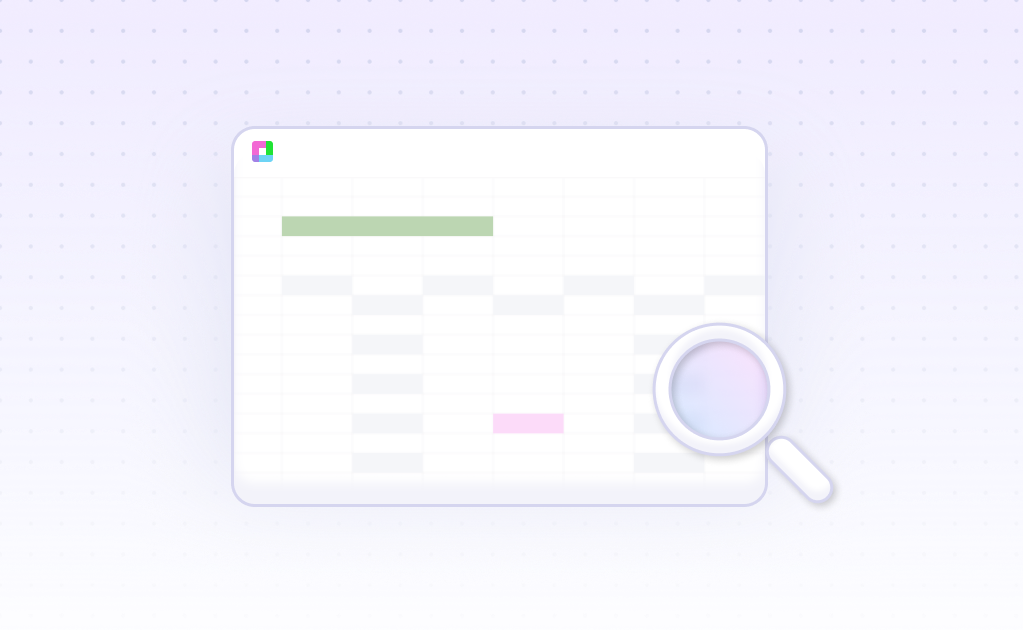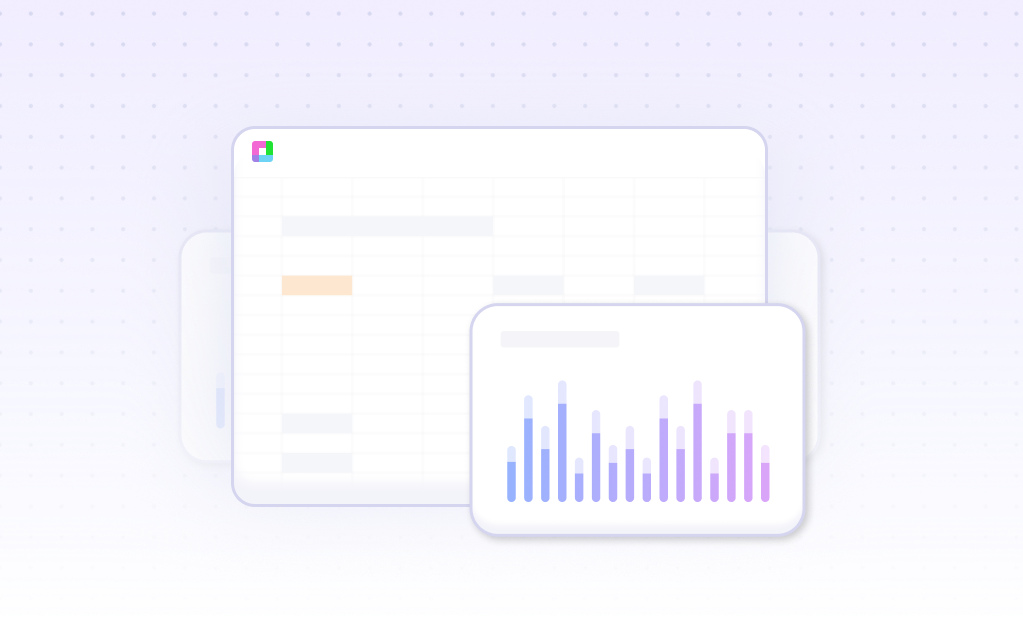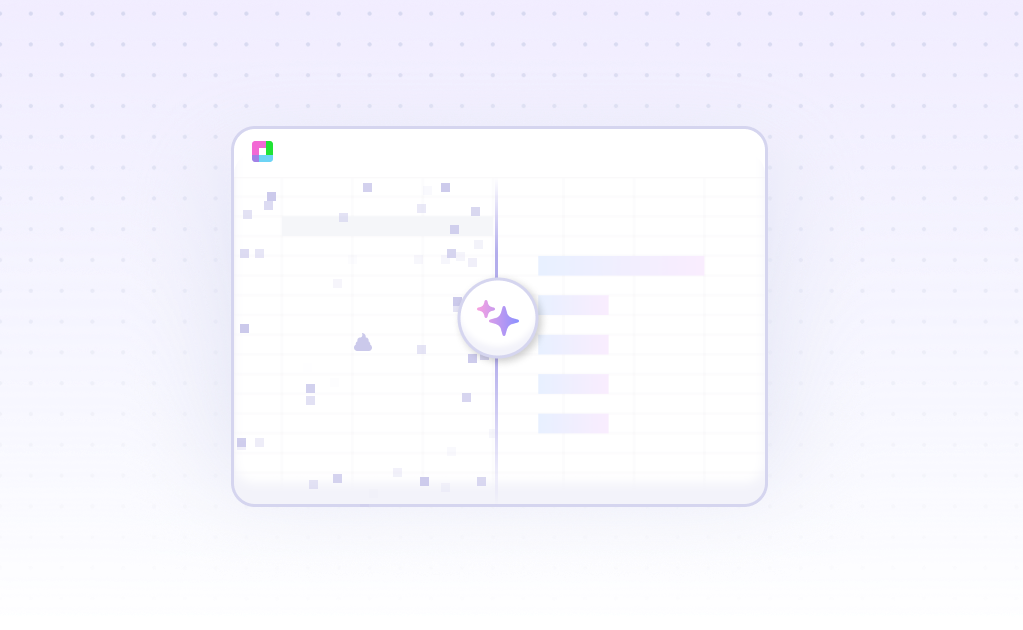
Introduction
Financial leverage analysis traditionally relies on Excel templates to calculate leverage ratios. While Excel remains a powerful tool, modern AI alternatives like Sourcetable streamline the analysis process. Sourcetable combines AI-driven formulas, data cleaning, and automated insights, integrating with over 100 platforms and databases. This AI-powered spreadsheet platform enables financial analysis through simple instructions, eliminating the need for complex Excel skills. Learn how to perform financial leverage analysis with Sourcetable's AI-driven tools.
Why Sourcetable is Superior for Financial Leverage Analysis
Sourcetable combines AI-powered automation with comprehensive spreadsheet functionality to streamline financial leverage analysis. Its advanced predictive analytics and real-time error detection ensure more accurate leverage calculations compared to traditional Excel workflows.
Key Advantages Over Excel
While both platforms offer multi-user collaboration and charting capabilities, Sourcetable's AI integration transforms complex leverage analysis tasks. The platform automates data extraction and processing, significantly reducing the time required to analyze financial leverage ratios and opportunities.
Enhanced Leverage Analysis Features
Sourcetable excels at evaluating leverage opportunities through its natural language interface and advanced analytics. Users can quickly assess potential profit amplification, analyze barriers to entry, and evaluate expensive trading opportunities - critical factors in leverage analysis that require extensive manual calculation in Excel.
Strategic Decision Support
For acquisitions and buyouts requiring leverage, Sourcetable's enhanced research capabilities provide deeper insights than Excel's basic functionality. The platform's audit trail feature ensures transparency in leverage calculations while its automated workflows streamline short-term financing analysis.
Benefits of Financial Leverage Analysis with Sourcetable
Financial leverage analysis enables investors to amplify profits, access expensive trading opportunities, and helps companies secure short-term financing for acquisitions or buyouts. Modern AI-powered spreadsheet tools enhance this analysis through automation and advanced capabilities.
Why Choose Sourcetable Over Excel
Sourcetable offers comprehensive spreadsheet analytics with built-in audit trails, calculators, and charting features. The platform enables multi-user collaboration while maintaining data integrity through detailed tracking systems.
As an AI-powered solution, Sourcetable automates data entry and analysis, efficiently identifying trends, outliers, and correlations. The platform generates accurate forecasts based on historical data and integrates seamlessly with other software platforms.
Cost and Support Benefits
Sourcetable provides a free pricing model with a trial period, making it accessible for organizations of all sizes. The platform includes API access for enhanced connectivity and automation capabilities.
Financial Leverage Analysis Examples with Sourcetable
Sourcetable offers no-code financial leverage analysis capabilities through integration with Google Sheets. Like Excel, it enables users to create automated calculators and leverage analysis tools.
Real Estate Investment Analysis
Analyze property investments where 80% of costs are financed through mortgages, with rental income covering loan payments. Sourcetable's automation features help track cash flows and leverage ratios.
Green Bond Investment Analysis
Evaluate sustainable financing projects, such as Apple's $4.7 billion Green Bond investments in low-carbon manufacturing. Sourcetable's data categorization and scenario analysis capabilities support environmental impact assessment.
AI-Enhanced Analysis Features
Sourcetable streamlines financial leverage analysis through automated data cleaning, report generation, and trend analysis. Its AI capabilities enable complex scenario modeling and investment strategy optimization.
The platform excels at processing large datasets and uncovering hidden insights for improved forecasting accuracy. Integration with Google Sheets provides familiar spreadsheet functionality with enhanced analytical capabilities.
Financial Leverage Analysis Use Cases with Sourcetable
Real-Time Financial Data Analysis |
Analyze financial leverage ratios and metrics in real-time as data updates, enabling immediate insights into debt utilization and risk exposure. |
Automated Financial Forecasting |
Generate accurate financial forecasts by analyzing historical leverage trends and automatically adjusting projections based on changing market conditions. |
Resource Allocation Optimization |
Analyze debt-to-equity ratios and capital structure metrics to optimize resource allocation decisions and investment planning. |
Strategic Decision Support |
Extract actionable insights from complex financial data to support strategic decisions about leverage and capital structure. |
Trend Analysis and Reporting |
Automatically generate reports analyzing financial leverage trends and patterns across multiple time periods and business units. |
Frequently Asked Questions
What is financial leverage analysis and why is it important?
Financial leverage analysis examines how companies use borrowed capital as a funding source. It helps determine if a company can effectively use debt to acquire assets and generate returns that exceed borrowing costs. Through leverage ratios like debt-to-equity and debt-to-EBITDA, it measures how much debt a company uses to maximize profits and assess if debt levels are healthy.
What key metrics can you analyze when examining a company's financial leverage?
The main financial leverage metrics include: debt ratio (measuring debt used to generate assets), debt-to-equity ratio (comparing borrowed money versus shareholder investment), debt-to-EBITDA ratio (comparing debt to income), equity multiplier (analyzing asset financing), and degree of financial leverage (measuring EPS sensitivity to operating income changes).
How can AI-powered spreadsheet analysis enhance financial leverage analysis?
AI-powered spreadsheet analysis can automate financial leverage calculations while integrating both structured data (balance sheets, income statements) and unstructured data (news reports, earnings calls). This enables faster risk identification, more accurate forecasting, and real-time adjustments to leverage analysis, helping teams focus on strategic planning and value creation.
Conclusion
Financial leverage analysis traditionally requires Excel spreadsheet skills to calculate key ratios and metrics. While Excel templates exist for calculating the financial leverage ratio, modern AI-powered alternatives like Sourcetable streamline this process. Sourcetable combines spreadsheet functionality with an AI assistant that responds to natural language commands, making financial analysis accessible to users without extensive Excel knowledge. Experience how Sourcetable can transform your financial leverage analysis at sourcetable.com/signup.
Sourcetable's AI capabilities extend beyond basic calculations, offering automated ratio analysis, performance metrics, and industry benchmarking. With integrations to over 100 data sources and support for Python and SQL, Sourcetable represents a new era in financial analysis that combines the flexibility of spreadsheets with the power of artificial intelligence.
Recommended Analysis Guides
Connect your most-used data sources and tools to Sourcetable for seamless analysis.
Frequently Asked Questions
If your question is not covered here, you can contact our team.
Contact Us




